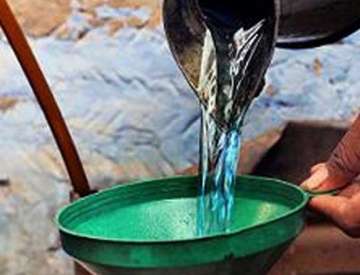Government to roll out LPG-like DBT scheme for kerosene from Apr 1
New Delhi: After the success of paying subsidy to LPG users in their bank accounts, the government will from April 1 roll out a similar programme for kerosene where the users will buy the cooking

New Delhi: After the success of paying subsidy to LPG users in their bank accounts, the government will from April 1 roll out a similar programme for kerosene where the users will buy the cooking fuel at market rate but will get financial support directly in their bank accounts.
The cash subsidy to be paid to users will be equivalent to the difference between current PDS price of about Rs 12 and market rate of Rs 43 per litre.
The move will help curtail subsidy outgo for kerosene, which in 2014-15 was about Rs 24,799 crore. “Several state governments have come forward to implement direct benefit transfer (DBT) in kerosene in selected districts,” an official statement said.
The scheme will be rolled out from April 1 in Raipur, Durg and Bilaspur in Chhattisgarh, Panipat and Panchkula in Haryana, Shimla, Solan and Una in Himachal Pradesh, Chhatra, Giridih, East Singbhum, Hazaribagh, Jamtara and Khunti in Jharkhand.
Besides, the scheme will be implemented in Hoshangabad, Harda, Khandwa and Burhanpur in Madhya Pradesh, Amaravati and Latur in Maharashtra, Taran Taran, Pathankot and Mohali in Punjab and Pali, Jhunjhunu and Kota in Rajasthan.
“Where such transfer is introduced, the consumer will pay the un-subsidised price of kerosene at the time of purchase. Subsequently, the amount of subsidy will be directly transferred to the bank account of the beneficiary.
“To avoid any inconvenience to the beneficiary through payment of un-subsidised price, subsidy shall be credited to eligible beneficiaries in advance during the initial purchase,” it said.
With a view to incentivize States/UTs to implement DBT in kerosene, it has been decided that the states be given cash incentive of 75 per cent of subsidy savings during the first two years, 50 per cent in the third year and 25 per cent in the fourth year.
In case the states voluntarily agree to undertake cuts in kerosene allocation, beyond the savings due to DBT, a similar incentive will be given to those States/UTs, the statement said.
“While implementing DBT, states have been advised to take all necessary steps to ensure that eligible/genuine beneficiaries particularly in rural areas are able to access their full entitlement of kerosene.
Special care should also be taken in areas having irregular power supply,” it said.
Stating that the scheme will be implemented with effect from April 1, 2016, it said the state governments will be consulted in the meantime before operationalising the scheme.
The working of the scheme will also be reviewed after three months of implementation.
The National Sample Survey 2011-12 indicates that the total consumption of kerosene in the country, including both open market and PDS kerosene, was 71.30 lakh kilolitres. Even though consumption of kerosene has been coming down over the years, 86.85 lakh kilolitres of subsidized PDS kerosene has been allocated to the states in the year 2015-16, which is higher than the total household kerosene demand in the country.
“Thus, there is evidence that some part of the kerosene allocation is diverted for non-eligible purposes,” the statement said.
Also, there has been a major increase in coverage of power supply through electrification of villages. Nearly 45 lakh new LPG connections have also been given to the poor. These measures, it said, have reduced the demand for kerosene, both for lighting and cooking purposes.